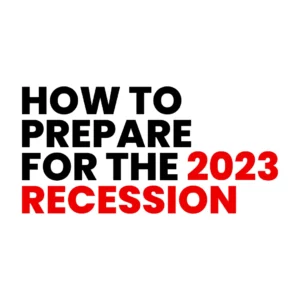Meta tags are essential when building or optimizing a website. Meta tags may seem like technical jargon, but understanding and optimizing them can improve your website’s search engine rankings. They direct search engines and users to your website. They significantly affect your website’s search engine rankings, which might affect your online exposure and company success. This article discusses the importance of meta tags in SEO and how you can use them to increase your website’s visibility and traffic.
What are meta tags in SEO?
These tags offer search engines and website visitors information about page content. Meta tags help search engines evaluate a web page’s content and relevance to user search queries. Meta tags provide vital information about web pages to search engines, making them vital for on-page SEO. If employed ethically, they can boost a website’s search engine rankings, click-through rates, and user experience.

Which meta tags are important?
SEO and website performance depend on several meta tags. Meta tags assist search engines in comprehending your content, boosting click-through rates, and improving user experience. Meta tags significantly affect your website’s search engine results, click-through rates, and user experience. Using these tags correctly will boost your website’s exposure, organic traffic, and content accuracy and engagement. Some key meta tags are:
- Title tags: The title tag is one of the most crucial SEO meta elements. It lists a website’s title and is a clickable headline in search results. An optimized title tag should match the page’s content and incorporate keywords to boost search engine rankings.
- Meta description tag: The meta description tag summarises web page content. This description appears below the title tag in search results to entice users to follow the link. Well-written meta descriptions boost click-through rates and user engagement.
- Meta robots tag: The meta robots element tells search engine crawlers how to index and follow links on a page. The “index” and “nofollow” directives are common. Controlling content indexation and ranking requires this tag.
- Canonical tag (rel=”canonical”): The canonical tag specifies a page’s preferred or canonical version to avoid duplicate content. It helps search engines index and rank the right page.
- Viewport Meta tag: Essential for mobile optimization. Responsive web design sets viewport size and scale to ensure web pages display effectively on different screens.
- Hreflang tag: The hreflang tag helps international SEO by indicating web page language and area. It helps search engines show readers the correct page based on language and region.
- Open Graph and Twitter card tags: The Open Graph and Twitter Card meta tags are for social media sharing. You can control how your content shows on Facebook (Open Graph) and Twitter (Twitter Cards). These tags increase social media content visibility and interaction.
Read also: How to Conduct a Comprehensive SEO Audit of Your Website
4 reasons for optimizing Meta tags
Now that you know what meta tags are and what kinds they are, you need to understand why optimizing them is vital for your online presence in Nigeria. Meta tags aren’t just technical details; they’re the digital keys to a world of benefits for your website. Here’s why optimizing meta tags is important for you in particular:
1. Improved search engine rankings
You want your website to rank high in search results for your products, services, and content, right? You can do it by optimizing meta tags.
Search engines like Google employ meta tags, especially title tags and meta descriptions, to determine your content’s relevancy to user queries. Optimizing these tags with keywords and appealing descriptions boosts search rankings. Visibility and site traffic increase with higher ranks.
2. Enhanced user experience
Your audience expects a smooth and informative online experience, and meta tags help. You can direct readers to relevant content on your site by optimizing title tags and meta descriptions.
Imagine a Lagosian customer looking for a product or service. If your meta tags adequately describe your page, they’ll click on your link knowing they’ll find what they need. This increases click-through rates and user satisfaction because visitors can quickly discover the necessary information.
3. Higher click-through rates (CTR)
Standing out in search results is crucial in the competitive internet scene. Optimized meta tags can make or break a link click. Well-written title tags and meta descriptions promote your content.
A fascinating title and a succinct, informative meta-description can attract readers to your site. Higher click-through rates boost website traffic and tell search engines your content is interesting and engaging.
4. Social media sharing impact
Social media is crucial to content discovery and sharing in Nigeria’s digital age. When your web pages are shared on Facebook, Twitter, or Instagram, your optimized meta tags return.
Optimized meta tags ensure that when someone publishes your content on social media, the post has an appealing title and relevant description, attracting followers and bringing traffic to your site.
How to optimize Meta tags
Now that you know why meta tag optimization is crucial for your Nigerian website’s success, let’s get started. Meta tag optimization isn’t as complicated as it seems, and with a little effort, you can boost site visibility and user engagement. These optimization approaches will improve your meta tags’ relevance to Nigerian users and search engines. To stay competitive and visible in Nigeria’s dynamic digital world, analyze and improve your meta tags. Here’s how to optimize meta tags;
- Keyword research: Keyword research is crucial to meta tag optimization. Target keywords related to your content and widely used by Nigerians searching online.
- Find content-related keywords with keyword tools. For Nigerian audiences, use location-specific keywords.
- Long-tail keywords (phrases with three or more words) capture specialized search queries better than broad keywords.
- Title tag optimization: The title tag is a vital meta element. It appears first in browsers and search results. Its optimization can make a big difference.
- Title tags should be 50-60 characters for search results. Format clearly and readable.
- Start the title tag with your main keyword to emphasize it.
- Make your titles compelling and relevant to the content to increase Nigerian click-throughs.
- Optimise Meta description: The meta description summarises your page’s content briefly.
- Cap your meta description at 150-160 characters. Format clearly and concisely.
- Write intriguing, original meta descriptions that appropriately portray your content. Utilise keywords naturally.
- Header tags (H1, H2, H3): Organize content and improve SEO with header tags. They also explain your page structure to website visitors.
- Use H1 for the page title, H2, H3, etc. for subsections. Creating a logical hierarchy.
- Header tags help search engines understand content structure and keyword relevancy, so employ them intelligently.
Tools for Meta tag optimization
After learning how to optimize meta tags, let’s look at various tools to make the process easier. These tools allow you to analyze, refine, and monitor meta tags to keep your website in great form. These tools optimize meta tags for search engines and social media, increasing your content’s visibility and shareability in Nigeria’s digital ecosystem. Try different tools to identify the ones that perform best for your workflow and meta tag optimization. These meta-tag optimization tools are essential;
1. SEO plugins and extensions
SEO plugins and extensions are available for content management systems (CMS) such as WordPress and Joomla. Many SEO plugins and browser extensions facilitate meta tag optimization.
- WordPress SEO plugins: Yoast SEO and All in One SEO Pack include simple interfaces for meta tag optimization. They give real-time feedback and ideas while editing.
- Browser extensions for SEO: MozBar and SEOquake let you analyze meta tags on any website. This aids competitive analysis.
2. SEO Analysis Tools
Obtain a complete understanding of your website’s SEO performance and meta tag optimization with dedicated tools. Google offers valuable options;
- Google Search Console: This free tool lets you track Googlebot’s meta tag interpretation of your site. Alerts regarding search ranking concerns are also available.
- External SEO analyzers: SEMrush, Ahrefs, and Moz offer comprehensive SEO suites with meta tag analysis. They can spot optimization opportunities and track your progress.
3. Meta tag generators
When developing new sites or generating meta tags rapidly, meta tag generators might be helpful. They can automatically generate meta tags from your content, saving work and maintaining consistency. Various free online software can produce title tags and meta descriptions from your input. Customize the generated tags to make them appealing.
Read also: How to Optimize URL Structure for SEO
3 common Meta tag mistakes to avoid
As you learn meta tag optimization, beware of frequent blunders that might hurt SEO and user experience. Avoid these mistakes to boost your Nigerian website’s internet success. Avoid these frequent meta tag blunders to optimize your Nigerian website for search engines and users. To keep ahead in the ever-changing digital scene, evaluate and update your meta tags often. Avoid these typical meta tag mistakes;
- Avoid stuffing keywords into title tags and meta descriptions, even though they are important for meta tag optimization. It may be tempting to stuff your tags with keywords, but this might hurt your results and make your content feel spammy to Nigerians. Instead, use keywords contextually and naturally. Provide valuable, engaging content that meets audience demands while naturally incorporating keywords.
- Avoid duplicate Meta tags: Identical title tags and meta descriptions on several sites might mislead search engines and users. Each page on your website needs distinct meta tags that match its content. Instead, customize your meta tags for each page to give users a clear preview of what they’ll see. It boosts SEO and user experience.
- Missing or empty Meta tags: Incomplete title tags and meta descriptions constitute squandered opportunities. If meta tags are absent, search engines may generate default snippets that misrepresent your content. Instead, Always write specific meta tags for website pages. It takes time, but SEO and user interaction are worth it.
Conclusion
You now understand meta tags and why optimizing them is crucial for your website’s success in Nigeria’s burgeoning online market. Meta tags are more than technical elements—they’re your hidden weapon to boost search engine ranks, engage Nigerians, and increase organic traffic. Meta tags can boost your internet presence by avoiding common mistakes and using the correct tools. Knowledge alone isn’t enough, action is key. Remember, SEO constantly changes, so keeping ahead requires devotion and expertise. Meta tag optimization and best practices will help you succeed online in Nigeria.
If SEO seems complicated or you need to help optimize your website for Nigerian audiences, contact an SEO specialist in Nigeria, like me. I’ll design an SEO strategy and solutions to your digital goals.




